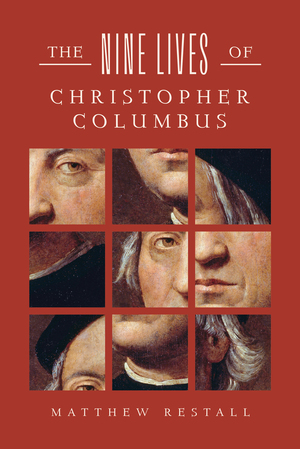The history of Columbus is not only wrapped up in such vast and thorny questions. It is also shrouded in numerous mysteries that have been woven, displayed, disputed, and “solved,” many of these “solutions” remarkably imaginative and astoundingly far removed from historical reality.
These manufactured mysteries center on Columbus’s name, nationality, place of birth, ancestry, education, religion, intellectual vision, moral fiber, sexual proclivities, and current resting place—all challenged and reclaimed, all made battlegrounds, all apparent mysteries with multiple solutions over which to fight with astonishing fierceness. Over two dozen nations, islands, provinces, or cities claim to be his birthplace. His bones spent time in four or five cities; three of them claim the remains are still there. His prowess as a lover, or sexual predator, or covert devotee of bestiality, has been proclaimed. Some have argued—and some still do—that he was secretly Jewish.
Others insisted that he was one of Catholicism’s greatest heroes. He was for long a controversial candidate for official sainthood, the campaign approved for a time by two popes, and he continues to be both lauded as a divine messenger and derided as an agent of Satan. Monuments to him in city squares are fought over, today more than ever, with passion and sometimes violence. He is hailed as the heroic founder of democratic nations and the evil architect of genocide.
Some facts are too well-evidenced to be questioned—that the man “sailed the ocean blue” (as the ditty goes) from Spain to the Caribbean in 1492, for example. But how we describe and talk about that simple fact has been itself made into a field for combat. Should we change “famous” to “infamous” and add “European” to “discovery”? Or should we dispense with “discovery” completely, or reverse the agency of encounter to have Indigenous Americans discovering Columbus? All of which is a precursor to defending Columbus Day or renaming it as Indigenous Peoples’ Day, to preserving or pulling down statues, to denouncing or celebrating the entire enterprise of European imperialism in the Americas and the Atlantic world.
But we can better understand both Columbus and world history since 1492 by decoupling the two. Whether your inclination is to defend or denounce Columbus, to champion or bemoan European colonization in the Americas, the cause-and-effect connection between Columbus and post-1492 history is a convenient but misleading myth. The history of the Americas is better understood if we view Columbus not as a uniquely gifted and heroic visionary, but as typical of the Iberian and northern Italian men of his day, another merchant mariner who became an explorer, slave trader, and conquistador-colonist. In turn, that allows us to view more clearly the many manifestations of Columbus as products of imperialism and migration, nationalism and regionalist patriotism.
